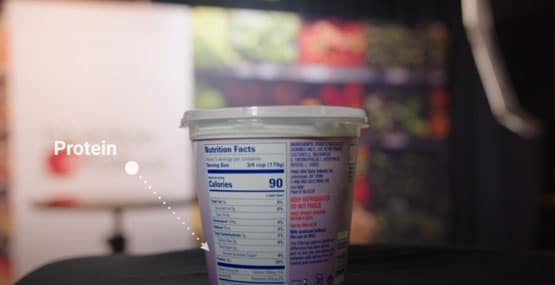
Calcium for strong bones: essential for kids' growth
Calcium is a vital nutrient that plays a crucial role in children's growth and development. It is essential for building strong bones and teeth, ensuring proper muscle function, and supporting overall health. And it's often easy to incorporate calcium into their meals and snacks in a fun and tasty way. with our Grocery Shopping videos helping to make that task simpler.
- Building Strong Bones: During childhood and adolescence, the body goes through a rapid growth phase. Bones are developing and becoming stronger. Calcium is a key nutrient needed for the formation and maintenance of healthy bones. It helps in bone mineralization, making them less prone to fractures and osteoporosis later in life.
- Calcium-Rich Foods: Including calcium-rich foods in a child's diet is essential. Dairy products such as milk, cheese, and yogurt are excellent sources of calcium. Non-dairy options like fortified soy milk, pea-protein milk, oat milk and tofu can also provide calcium. Additionally, green leafy vegetables like broccoli and kale, as well as calcium-fortified cereals and juices, can contribute to meeting daily calcium needs.
- Recommended Daily Intake: The amount of calcium children need varies depending on their age. On average, toddlers need 700 milligrams (mg) of calcium per day, children aged 4-8 years require about 1,000 mg, while those aged 9-18 years need around 1,300 mg. It's important to ensure that children meet these recommended levels to support their bone health.
- Calcium Absorption: To maximize calcium absorption, it is important to consume foods that are rich in Vitamin D. This vitamin helps the body absorb and utilize calcium efficiently. Sources of Vitamin D include sunlight exposure, fortified dairy products, fatty fish like salmon, and egg yolks. Encouraging children to spend time outdoors and incorporating these foods into their diet can enhance calcium absorption.
- Fun Ways to Incorporate Calcium: Making calcium-rich foods enjoyable for kids can encourage their consumption. Here are some ideas:
- Create a yogurt parfait with layers of yogurt, fruits, and granola for a delicious and nutritious snack.
- Offer cheese cubes or string cheese as a convenient and calcium-packed snack.
- Make smoothies using milk or yogurt as a base and adding fruits like bananas or berries for added flavor and nutrition.
- Bake homemade pizzas with a calcium-rich cheese topping and vegetable toppings.
- Include calcium-fortified cereals in breakfast rotations and serve them with milk for a calcium double-dose.
- Note that kids who are allergic to milk (and thus, have to avoid milk products) can substitute soy, oat and other plant-based alternatives. Though almond milk is low in protein, products made from it can be used because it's usually fortified with calcium and vitamin D.
- Encouraging Healthy Habits: In addition to a calcium-rich diet, physical activity is essential for bone health. Engage children in weight-bearing exercises like jumping rope, dancing, or playing sports. These activities help promote the growth of strong bones and muscles, further enhancing the benefits of calcium intake.
- Consulting a Healthcare Professional: If you have concerns about your child's calcium intake or if they have specific dietary restrictions, it is always a good idea to consult a healthcare professional. They can provide personalized guidance and recommend appropriate calcium supplements if necessary.
Conclusion: Calcium plays a vital role in children's growth and development, particularly in building strong bones and teeth. By incorporating calcium-rich foods into their diet and promoting an active lifestyle, parents and caregivers can ensure their children receive the necessary calcium intake for optimal bone health. Remember, making nutritious foods enjoyable and involving kids in meal planning can contribute to their long-term bone strength and overall well-being, with our Grocery Shopping videos helping to make that task simpler.





